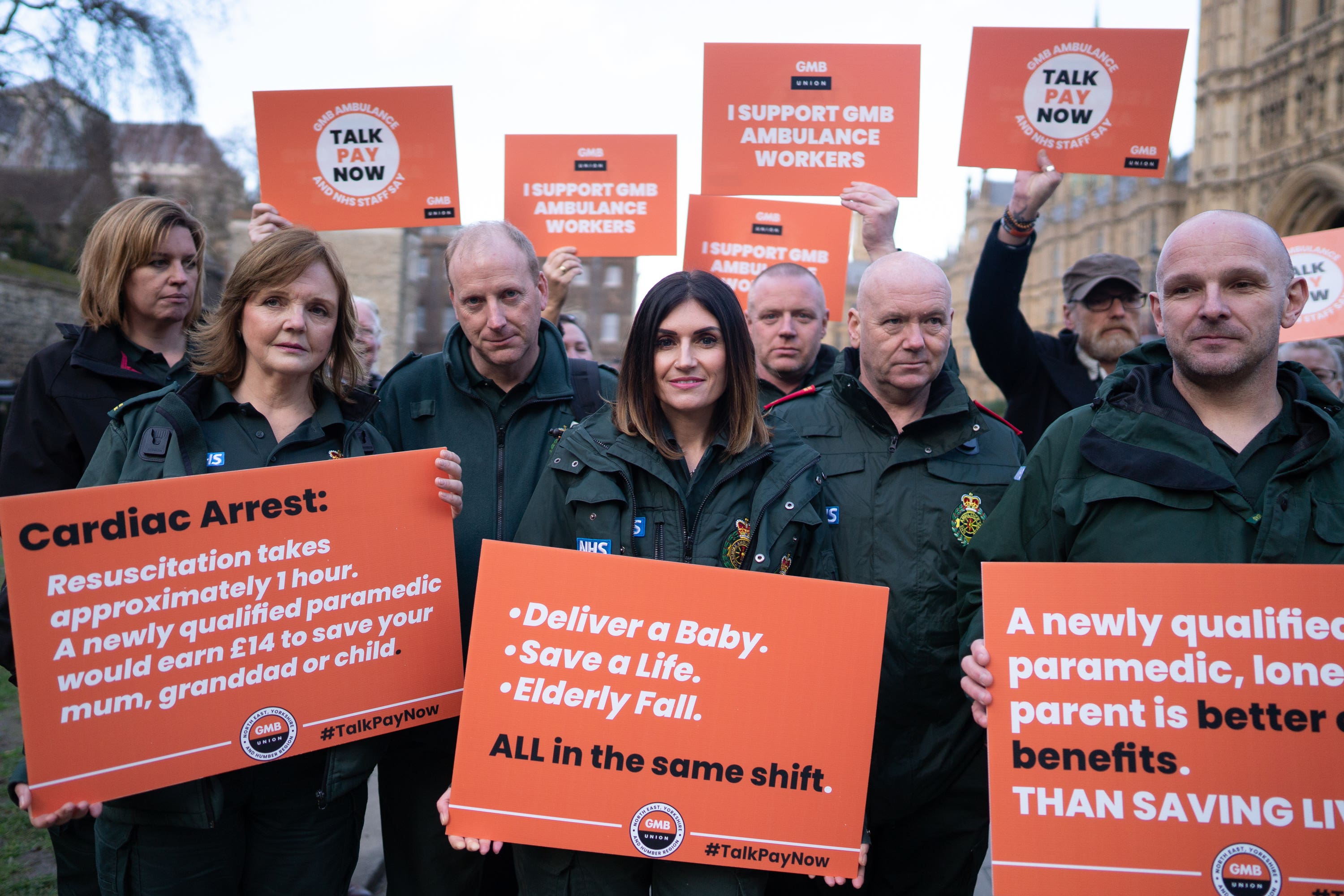Patients face longer waits unless strikes end, NHS leaders warn
Thousands of nurses and ambulance workers are due to strike on Monday.

The NHS will struggle to clear treatment backlogs and improve emergency care unless strikes by thousands of staff are brought to an end, health leaders have said.
The NHS Confederation, which represents NHS organisations, said the Government must “show initiative” to end the dispute or risk patients suffering even longer waiting times than at present.
Thousands of nurses and ambulance workers are due to strike on Monday in what many predict will be the biggest strike day the NHS has ever seen.
Leaders are growing increasingly restless about the impact this dispute is having on patient care
Nurses from the Royal College of Nursing (RCN) will walk out alongside GMB and Unite paramedics, call handlers and other staff at ambulance trusts.
Nurses will strike again on Tuesday, ambulance workers again on Friday and physiotherapists on Thursday.
In a warning to the Government, the NHS Confederation said “the intensifying waves of industrial action”, which are leading to tens of thousands of appointments needing to be postponed, must be brought to an end.
It said there was a “growing fatigue” among NHS leaders given the cumulative impact of the strikes, adding it was becoming harder to deal with the constant disruption.
Figures suggest the number of NHS cancellations of operations and appointments has increased to more than 88,000.
The NHS Confederation warned that as well as the threat to tackling waiting lists, patients may be put off accessing healthcare due to strikes, which only stores up problems for the future.
Matthew Taylor, chief executive of the NHS Confederation, said: “NHS leaders have managed the impact of the individual strike days very well up until now, but they are growing increasingly restless about the impact this dispute is having on patient care at a time when they have made solid progress to recover services after the pandemic.
“We face a hugely disruptive week for patients, with five consecutive days of walkouts planned, and the Government cannot afford to let this escalate any further.
As there appears to be no end to industrial action in sight and with at least 10,700 elective procedures having had to be cancelled already because of the strikes, health leaders fear a further escalation will only make the NHS’s recovery even harder
“We urge ministers to take the first step and find a resolution to this deadlock with the unions.
“It is not only the disruption on the day that is a cause of worry but the longer-term damage on service delivery, staff morale, reform, and how the public engages with the NHS too.
“As there appears to be no end to industrial action in sight and with at least 10,700 elective procedures having had to be cancelled already because of the strikes, health leaders fear a further escalation will only make the NHS’s recovery even harder.”
It comes as NHS England urged patients to seek urgent care if they need it during strikes and to continue to attend appointments as planned unless told otherwise.
It is vital that people do not put off seeking care and come forward for treatment
NHS medical director Sir Stephen Powis said: “Next week is likely to be the most disruptive week of strikes to date and while local services have worked hard to minimise the impact for patients, the scale of the action means increased disruption is inevitable.
“However, it is vital that people do not put off seeking care and come forward for treatment – using 111 online for non-life threatening care, as well as local pharmacies or general practice, or dialling 999 in a life-threatening emergency.
“Areas impacted have worked hard to maintain as much routine care as possible so it is also important that anyone with an appointment should continue to attend as planned unless they have been contacted to rearrange.”
On Friday, the GMB, RCN and Unison announced they were suspending strikes scheduled for members in Wales after a new offer aimed at resolving a pay dispute.
They said this would allow further negotiations with the Welsh Government.
A Department of Health and Social Care spokesman said: “Our sympathies are with anyone whose care has been affected as a result of strike action, and we urge unions to carefully consider the impact on patients.
“The Health and Social Care Secretary has been having constructive discussions with unions about the 2023/24 pay process, and wants to continue talking about what is affordable.
“The NHS has made strong progress in tackling the Covid backlogs, virtually eliminating waits of over two years for treatment – and we set out an urgent and emergency care recovery plan earlier this week to reduce waiting times for patients including through 5,000 more hospital beds and 800 new ambulances.”
Shadow health secretary Wes Streeting said: “Patients are paying the price for Steve Barclay and Rishi Sunak’s NHS strikes.
“The NHS is already in the biggest crisis in its history after 13 years of Conservative mismanagement, further disruption is the last thing patients need.
“This chaos has gone on long enough. Ministers need to get around the table and agree an end to these strikes.”
Bookmark popover
Removed from bookmarks